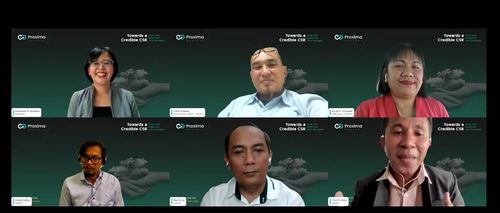SROI Method Becomes a 'Ninja Way' to Strengthen Corporate CSR Strategy


Jakarta: Social Return On Investment (SROI) can be used as a strategic tool to clarify impact logic, map social value, and build long-term trust.
Proxima Research notes that while SROI is not a new concept in the CSR world, its use in Indonesia is still mostly limited to formal reporting or for external assessments like the PROPER evaluation.
"Even though CSR has been implemented, public trust doesn’t always follow. CSR that isn’t measured will only end up as a narrative. And if impact measurement is done just to fulfill formal requirements, it won’t bring meaningful change," explained Hendy Adhitya, a researcher from Proxima Research, in a written statement on Wednesday, May 28, 2025.
Proxima Research’s Managing Director, Hansen Julianto, added that the webinar not only provided updated insights for CSR stakeholders on the importance of building sustainable, measurable, and impactful community development programs, but also introduced tools—especially SROI—as a way to evaluate the impact of CSR initiatives.
According to him, CSR is often viewed as a burden—unplanned, and executed only as a formality. In fact, CSR is a strategic investment that can boost trust in a company, support long-term business sustainability, and even increase revenue.
"For impact to be sustainable, it needs to be managed. And we can only manage it if we understand how to measure it," added Roy Ferdy, CSR Researcher & Evaluator from Universitas Indonesia.
CSR Has Yet to Be Fully Integrated into Business Strategy
In reality, most companies in Indonesia are still in a transition phase, as CSR has not yet been fully integrated into business strategy. Through concrete examples and case studies, Proxima Research demonstrated how SROI can be used to sharpen strategic direction and deliver measurable social impact.
"There are two main functions of SROI that are simple yet powerful for anyone looking to measure impact. SROI allows us to identify and map all the positive outcomes from every intervention we've made," said UI lecturer and CSR researcher Yosef Hilarius.
Yazid Alfaizun, Coordinator of the CSR Department at PT Astra Daihatsu Motor, shared on-the-ground challenges and bottlenecks.
"We work with over 400 schools, but out of those 400, what’s the real impact? That’s what I keep trying to figure out. Is it only about how many graduates get jobs in the industry?" he questioned.
Meanwhile, Emilia Katrina Sitompul, Head of Corporate Communication & CSR, ESG Committee of ABM Group, shared how SROI helps translate the value of social investment into metrics that all stakeholders can understand.
"As Mas Yosef said—it’s all about monetizing. When we pay for our children’s education, of course we want to understand the value of that investment,” she added.
The original article in Bahasa Indonesia can be read here.